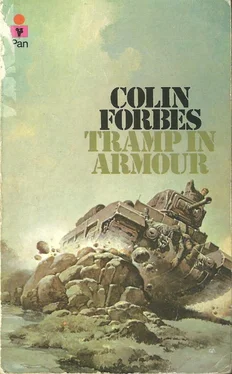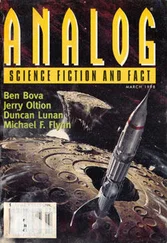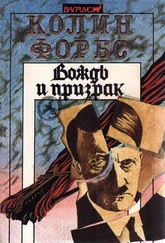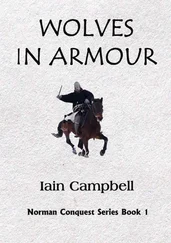Колин Форбс - Tramp in Armour
Здесь есть возможность читать онлайн «Колин Форбс - Tramp in Armour» весь текст электронной книги совершенно бесплатно (целиком полную версию без сокращений). В некоторых случаях можно слушать аудио, скачать через торрент в формате fb2 и присутствует краткое содержание. Город: London, Год выпуска: 1971, ISBN: 1971, Издательство: Pan Books, Жанр: Триллер, Историческая проза, prose_military, на английском языке. Описание произведения, (предисловие) а так же отзывы посетителей доступны на портале библиотеки ЛибКат.
- Название:Tramp in Armour
- Автор:
- Издательство:Pan Books
- Жанр:
- Год:1971
- Город:London
- ISBN:0-330-02686-0
- Рейтинг книги:3 / 5. Голосов: 1
-
Избранное:Добавить в избранное
- Отзывы:
-
Ваша оценка:
- 60
- 1
- 2
- 3
- 4
- 5
Tramp in Armour: краткое содержание, описание и аннотация
Предлагаем к чтению аннотацию, описание, краткое содержание или предисловие (зависит от того, что написал сам автор книги «Tramp in Armour»). Если вы не нашли необходимую информацию о книге — напишите в комментариях, мы постараемся отыскать её.
Tramp in Armour — читать онлайн бесплатно полную книгу (весь текст) целиком
Ниже представлен текст книги, разбитый по страницам. Система сохранения места последней прочитанной страницы, позволяет с удобством читать онлайн бесплатно книгу «Tramp in Armour», без необходимости каждый раз заново искать на чём Вы остановились. Поставьте закладку, и сможете в любой момент перейти на страницу, на которой закончили чтение.
Интервал:
Закладка:
‘We’ll never get through that lot,’ he said eventually.
‘There is a road which turns off over there.’ Pierre pointed across the fields to a low hedge. ‘You could take your tank along that road. No refugees have come from that direction since the Germans attacked.’
‘Do you know where it goes?’
‘Of course. It leads to Arras. I have never been there but my uncle has told me. I have been along it for many miles and it is wide enough for a tank.’
What Pierre was saying agreed with the map Barnes had studied and he found his thoughts turning more and more towards the town of Arras. Penn had told him that a news bulletin that morning had reported an Allied counter-attack developing in the area of Arras, a counter-attack of British tanks, and the town was the one fixed point where the Allies seemed to be engaging the Germans. He looked to the right as he heard a car coming closer, its horn blaring persistently. It was an open touring Renault, a green four-seater, and superficially it had the appearance of a military staff car. For one split second Barnes thought he might have re-established contact with the Allied forces, and then he saw that the only occupant was a woman. The horn blared again and again as she stopped and then edged forward a few more yards. Barnes felt that she must be crazy, but as he watched her he was filled with a sense of unease, an odd foreboding. To add to her idiotic behaviour she had not even offered a lift to any of the exhausted wretches who trudged in front of her on foot.
‘How provocative can you get?’ growled Barnes.
‘Pardon?’
The German attack came without warning, without mercy, came out of clear blue sky from in front of the sun so that it was almost impossible to detect their approach, but Barnes heard them coming.
‘Down!’
He shouted the word again and again to the bewildered crowd and then dropped flat on the grass beside Pierre as the first Messerschmitt swooped along the column, its engine screaming, its machine gun blazing non-stop. The crowd was dazed, stunned with terror, unable even to attempt to run for safety in the shock of the sudden onslaught. In front of him Barnes saw an old man turn and stare at the plane as it came straight along the road with a scream and a stutter. He must have taken a dozen bullets in the chest before he crashed back against a cart. As the first machine screamed past, Barnes tugged out his revolver and waited for the next one, steadying the gun barrel across bis arm. The second Messerschmitt pulled out of its dive and sped over the procession almost immediately. Barnes saw the outline of the pilot’s helmet, the black cross on the fuselage, the swastika on the tail. He fired three times in rapid succession, knowing that it was hopeless. Unless a .455 bullet burst through the petrol tank he might just as well be armed with a bow and arrow, but he had to try something. The third machine was coming now, its nadir so low that it almost skimmed the heads of the panic-stricken refugees. Barnes fired, swearing foully as he switched his eyes to the west where another one was coming, and at that moment a horse went berserk, dragging its cart off the road as people scrambled desperately to escape this new menace.
There were six machines altogether, and when they had flown away from the carnage the afternoon was suddenly horribly quiet. Only the heart-broken cries of sobbing women disturbed the stillness as Barnes clambered to his feet and ran over to the stationary Renault. When he reached the car and looked inside he clenched his teeth: the woman in the Renault had taken the full blast of the machine gun and now she was hardly identifiable even as a blood-soaked corpse. The engine was still running so he leaned over and switched off the ignition. He would give these refugees what help he could and then head for Arras non-stop.
The tank rumbled southwards at top speed and the road ahead was clear as far as the eye could see, another panorama of Belgian pastureland spreading away with hardly a tree anywhere, which meant no cover from air attack.
Standing in the turret, Barnes concentrated on keeping all-round observation: the deserted road ahead, the road behind, the fields on either side where people worked a long way off and never seemed to notice the passage of a British tank and, above all, the sky overhead where the most instant danger could strike without warning. Below him Penn occupied Davis’ old position behind the guns, while in the nose of the tank Reynolds sweltered as he handled his driving levers, his head thrust up through the open hatch, relieved that once again they were on the move and that Barnes was in command. To Reynolds, all was well with the world so long as Barnes was in command. Behind the turret sat Pierre. He was perched outside the tank on the engine covers and already had grown accustomed to the gentle wobble of the hull as the huge tracks ground farther south with every revolution. There had almost been a row between Barnes and Penn over taking the Belgian lad. At first, Barnes had refused point-blank.
‘We need him for information,’ Penn had protested. ‘He knows the country and we don’t. Supposing we’re inside a town close to the battle area – accurate information will be vital. Our lives may depend on it and the only one who can get it quickly from the locals is Pierre. He’s taken some chances with us already – he was with us in the building all the time the Panzer column was moving through Fontaine. We didn’t know it at the time but if he’d been caught with us they’d have shot him. And he brought food for us.’
It was probably the gesture of bringing food which had finally persuaded Barnes to let Pierre travel with them until he could drop him off in an area more peaceful than Fontaine. They were on the point of departing when Pierre had come running back from the village with sticks of French bread under each arm and a satchelful of tinned meat hanging from his shoulder. He even had a packet of coffee in his pocket. No one had inquired too closely as to how he had obtained these provisions: after all, there was a war on.
And now, as the tank left Fontaine far behind them, Barnes was weighing up many things. It was pleasant to have the sun shining down on them, but it was from the sun that the Luftwaffe made its sneak attacks, so frequently he shaded his eyes to scan the sky, straining his ears for the first warning sound of approaching engines. The landscape ahead was beginning to undulate and he kept a careful observation along the ridges to detect any signs of gun positions which might lie in ambush. So far they had only met Belgian horse-carts on this lonely road which seemed to go on for ever, horse-carts which plodded past while their drivers stared at the tank as though hardly able to believe their eyes. As he kept up his vigilant watch Barnes was also trying to locate on the map the road they were travelling along and he was puzzled. There was a road from Fontaine which led south-west in the general direction of distant Arras, but this road had gradually turned until they were heading due south Without mentioning his discovery, he kept an eye open for landmarks.
They were going to run into trouble soon now, Barnes could feel it in his bones. They were travelling with their guns loaded and the power-traverse on, and Barnes bad given Pierre strict instructions that in case of trouble he must immediately leave the tank and take cover. The farther they moved along this peaceful road, the only witnesses to their progress cows grazing in the fields, the tauter Barnes’ nerves became. It was only a matter of time before they met something big and when that happened he’d have to take a lightning decision. He only hoped that he was up to that. He had reached the stage where he accepted the throbbing and. pricking of his shoulder as a permanent burden, as much a part of himself as breathing, but he did wish that the dreadful pounding headache would go away. Under the circumstances it was remarkable that he reacted at all when the emergency arose, and the fact that he reacted instantly was little short of a miracle.
Читать дальшеИнтервал:
Закладка:
Похожие книги на «Tramp in Armour»
Представляем Вашему вниманию похожие книги на «Tramp in Armour» списком для выбора. Мы отобрали схожую по названию и смыслу литературу в надежде предоставить читателям больше вариантов отыскать новые, интересные, ещё непрочитанные произведения.
Обсуждение, отзывы о книге «Tramp in Armour» и просто собственные мнения читателей. Оставьте ваши комментарии, напишите, что Вы думаете о произведении, его смысле или главных героях. Укажите что конкретно понравилось, а что нет, и почему Вы так считаете.








![Невилл Форбс - История Балкан [Болгария, Сербия, Греция, Румыния, Турция от становления государства до Первой мировой войны] [litres]](/books/390301/nevill-forbs-istoriya-balkan-bolgariya-serbiya-gre-thumb.webp)


